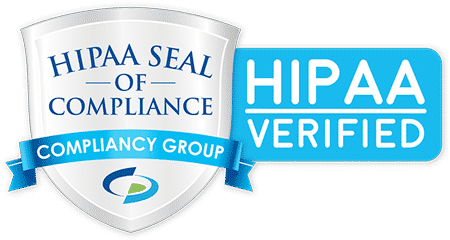
There’s a common misconception that hackers only go after the big fish in the corporate sea. In reality, a cybercriminal is just as likely to commit a cyberattack on a small business. In fact, 43% of all cyberattacks committed in 2020 targeted small businesses, according to Fundera.
Regardless of the size of your organization, you need to take the proper measures to protect your data. A good starting point for improving your security is to understand the threats facing your company. In this blog, we’ll go over the biggest small business cybersecurity risks.
Small Business Cybersecurity Risks
There are many reasons why hackers choose to go after smaller firms. While your company may not be as lucrative of a target as a large corporation, smaller businesses are often easier to attack because of the lack of investment in small business cybersecurity. Additionally, if you work with large enterprises, hackers could see your network as a pathway to get to your partners.
Although cybercriminals use a variety of tactics to invade your systems, some attacks are more commonly used than others. Understanding these tactics gives you an opportunity to take countermeasures for prevention and mitigation. We’re going to cover the most prevalent forms of cyberthreats, but you should familiarize yourself with less common types of risks as well.
Phishing
Among the most widespread cyberthreats affecting small businesses, phishing reigns supreme. About 70 to 90% of all data breaches are caused by phishing and other social engineering attempts, according to KnowBe4. What’s worse is these attacks have only increased since the beginning of 2020.
Phishing is considered to be one of the most dangerous risks facing companies today, because these scams are specifically designed to manipulate victims with deception. They also tend to be tricky to spot, often appearing to be sent from a legitimate source. If an employee receives a phishing email and isn’t careful, they could end up revealing sensitive information or infecting your network with malware.
Malware
The next biggest threat to your organization is malware. When we say malware, we’re not referring to a single risk. Rather, malware is an umbrella term that includes a variety of threats, like Trojans and spyware. It usually comes from malicious website downloads, phishing scams, or connecting with infected devices.
The main way malware hurts your company is by spreading to uninfected devices and rendering them practically unusable. Depending on the type of malware, an attack can also give hackers a backdoor entrance into your network. When your technology is compromised, it often leads to expensive repairs or replacements.
Ransomware
Ransomware is a specific type of malware that has quickly become a major problem for small business cybersecurity everywhere. What makes ransomware unique is that it can encrypt files, applications, or even your operating system (OS). When data is encrypted from an outside source like this, you essentially lose access to anything that’s been infected.
The reason it’s called ransomware is because the criminal behind the attack often asks for money to decrypt your system. However, there’s no guarantee they’ll follow through even if you pay the ransom. This has become one of the most reported types of attack on financial firms.
Insider Threats
Normally, you only have to worry about threats from outside of your organization. But sometimes, a threat can come from the inside. When current employees, former employees, contributors, or associates put your company at risk, they’re known as insider threats. This is a growing problem among many employers in recent years.
Unlike most other cyber risks, insider threats have immediate, unrestricted access to your company’s data. The motive for an insider threat ranges anywhere from disdain for the company to simple ignorance. Since these people have the ability to leak confidential information, insider threats are dangerous to both your company and your staff.
Cybersecurity Solutions for Small Business
The best way to avoid falling for any of these attacks is to establish a strong cybersecurity program. However, not every company can afford the necessary resources for full protection. When this is the case, a managed service provider like Net3 IT can offer the services you need to stay secure.
At Net3 IT, we provide a variety of security solutions to protect your organization from cyberthreats. Through our managed security services, we implement the tools your network needs to detect and eliminate threats. Our consultants give cybersecurity advice for small businesses that helps you understand where and how to fix vulnerabilities in your system. We can also educate your team on how to spot and avoid risks with our cybersecurity training for small businesses.
Contact us today to learn more.

About Us
Since 2012, Net3 IT has offered enterprise-level IT experience and industry knowledge to help Knoxville businesses make the right decisions. We are committed to our customers’ success by providing cost-effective, high-value IT services, VOIP phone services, and strategic consulting.

